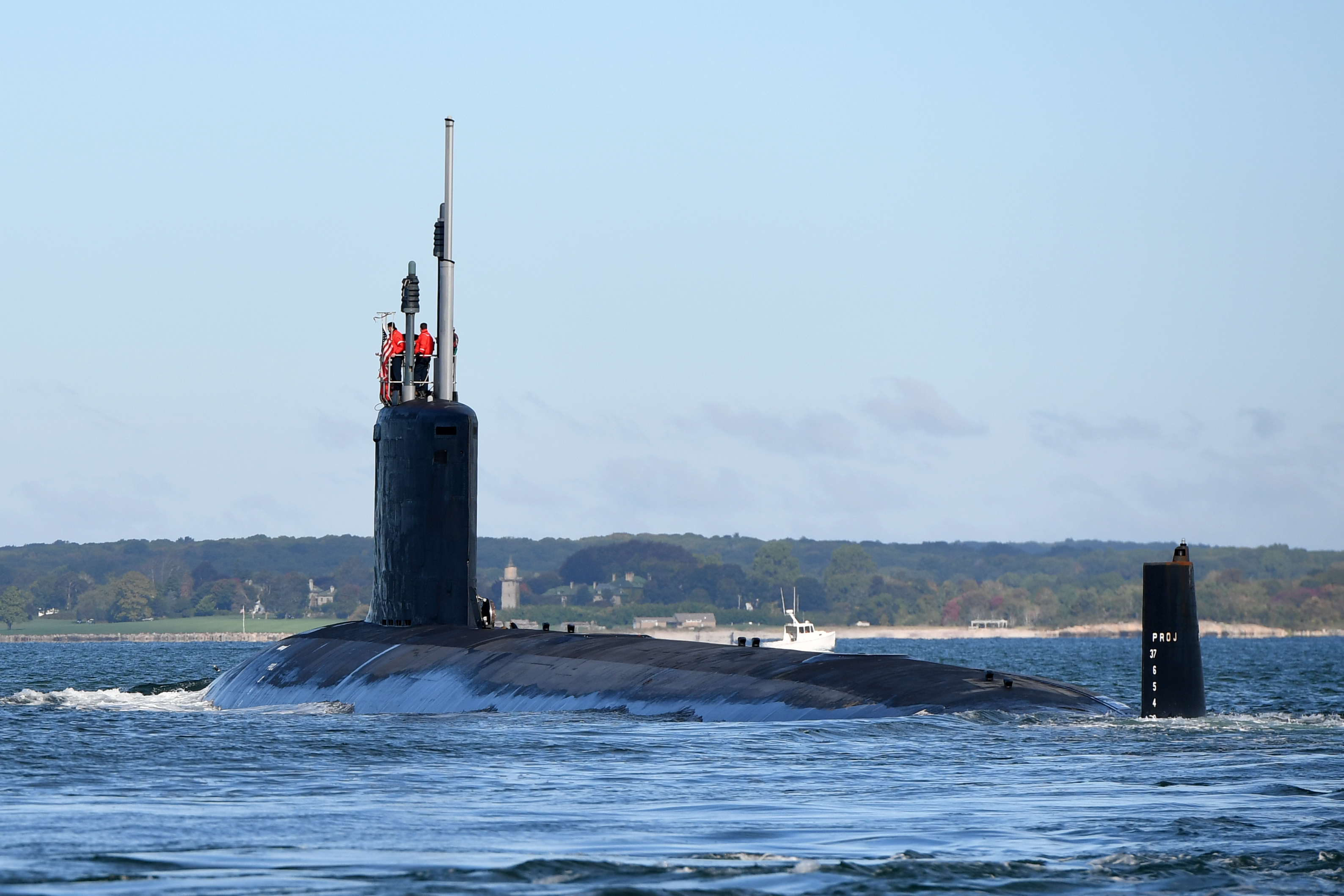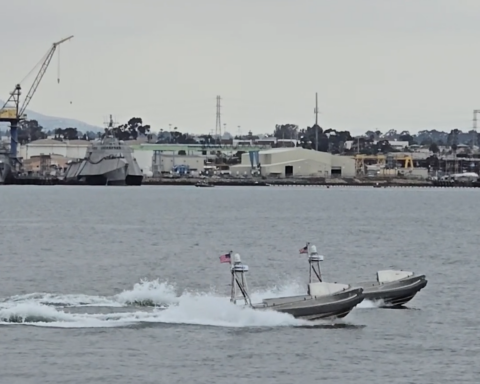
A group of Republican lawmakers is calling on the Biden administration to boost submarine industrial base support with a claim the U.S. submarine force could be at risk if Washington goes through with the sale of Virginia-class nuclear attack boats to the Royal Australian Navy, according to the letter obtained by USNI News.
On Wednesday, the group of 22 senators and three House members led by Sen. Roger Wicker (R-Miss.) and Sen. Susan Collins (R-Maine), called on the White House to present a multi-year plan to expand the submarine industrial base spending as part of the AUKUS pact between the U.S., U.K. and Australia.
The current outline of the AUKUS plan calls for the U.S. to sell Australia three to five U.S.-built Virginia-class attack boats to the RAN in the early 2030s while simultaneously developing Australia develops domestic submarine construction capacity. The signatories argue the sales would detract from the U.S. submarine force without additional submarine production.
“This plan, if implemented without change, would unacceptably weaken the U.S. fleet even as China seeks to expand its military power and influence… To make up for the sale of at least three attack submarines to Australia, the U.S. would have to produce somewhere between 2.3 to 2.5 submarines per year to avoid further shrinking our fleet’s operational capacity,” reads the letter.
“We urge you to send Congress immediately an AUKUS-specific request for appropriations and authorities alongside a multi-year plan to increase U.S. submarine production to a minimum of 2.5 Virginia-class attack submarines per year. It is time to make generational investments in U.S. submarine production capacity, including supplier and workforce development initiatives.”
While not explicit in the letter, the intent is to establish a supplemental shipbuilding fund separate from the baseline defense budget, a legislative source told USNI News on Thursday. While the Fiscal Year 2024 and 2025 defense budget is capped under an agreement between President Joe Biden and Speaker of the House Kevin McCarthy (R-Calif.) over the debt ceiling, the Senate is expected to introduce a supplemental defense proposal later this year to boost the industrial base, provide additional funding for weapons to Ukraine and fund China deterrent efforts in the Middle East. The source told USNI News that the submarine industrial base funding could be included in a supplemental package.
Download the document here.
In a Thursday statement to USNI News, the office of Sen. Tim Kaine (D-Va.) highlighted industrial base support in the current FY 2024 National Defense Authorization Act and would be open to an additional conversation on supplemental funding for shipbuilding.
“[Kaine] believes our defense industrial base is strong, and he’s working to keep it that way,” reads the statement.
“He’s also open to a conversation about additional funding for shipbuilding. It’s his understanding that House Republicans will be the biggest roadblock to Senate Republicans’ desire for that.”
McCarthy said last month that he opposed an additional supplemental to the defense budget.
In terms of new submarine construction, contractors General Dynamics Electric Boat and HII’s Newport News Shipbuilding are delivering about 1.2 submarines a year with a Navy plan to get to 2 a year by 2028, USNI News previously reported.
In a Thursday memo to members of the House, Rep. Joe Courtney (D-Conn.), the ranking member of the House Armed Services seapower and projection forces subcommittee, said previous investments in the submarine industrial base were paying dividends.
“The production rate for Virginia-class submarines was nearly at 2.0 prior to the COVID-19 pandemic. Degradation of that rate since can be attributed to a complex set of factors: the COVID-19 pandemic and its impact on the industrial base, the incorporation of the 84ft Virginia Payload Module (VPM) on the heels of increasing the build rate from one a year to two, and the ramp up of Columbia class production (with each boat equivalent to 2.5 Virginia-class SSNs),” reads a memo Courtney sent to House members this year.
“From FY18 to FY22, Congress invested nearly $1 billion in developing suppliers, training up workforce, and other critical areas. In FY23, the Biden Administration initiated a 5-year investment in the SIB, totaling $2.4 billion. The first tranche of $748 million was approved by Congress in FY23 NDAA and Omnibus; another $647 million is pending as part of deliberations for FY24. AUKUS, too, will bring direct investment in our industrial base in addition to the proceeds from the sale of the submarines.”
The Australians have also committed to a $3 billion investment into the U.S. and U.K. industrial base in what Australian minister for defense industry, Pat Conroy has called an AUKUS “down payment.”
Even with an injection of additional resources, the submarine base will still be faced with workforce and supplier shortages that were exacerbated by the onset of the COVID-19 pandemic, USNI News has previously reported.
The delay of the current 13 Virginia-class submarines under contract is a combined 410 months behind schedule, according to a recent Navy construction estimate reviewed by USNI News.
Aside from the industrial base concerns, Congress is working through other limitations to sharing the submarine technology with the Australians.
This week the House Foreign Affairs Committee advanced a bill that would allow the sale of the Virginia-class submarines to the RAN.
“Importantly, spelling out the transfer and sale of submarines and allowing the U.S. to accept Australia’s $3 billion investment will prove critical to not only fulfilling AUKUS, but increasing the capacity and capability of U.S. shipyards to meet our undersea warfare requirements. This step builds on the work already underway to expand and bolster our submarine production and maintenance capabilities, which will help achieve the sustained two-per-year build rate and needed operational availability of attack submarines in the period when this transfer could occur. AUKUS is essential to these goals, and I applaud the strong bipartisan statement sent through today’s vote,” reads a statement from Courtney’s office.
The Senate Foreign Relations Committee passed similar legislation earlier in July





